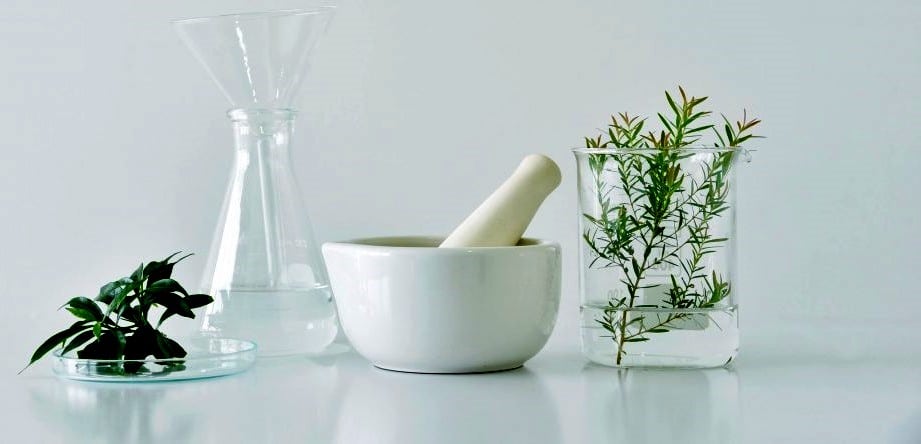How Do I Become More Like You?

My role as a mentor
As a mentor to health professionals, I naturally get asked a lot of questions. One thing I get asked a lot is, “How do I become more like you?”. While I love that people are taking a keen interest in my “less is more” approach with functional medicine, it’s also a very difficult question for me to answer.
Most health professionals would agree that if they were to ask the same question of themselves, they’d have a hard time knowing where to start. We all know that it’s not our official degrees or “titles” that make us unique. Formal education only teaches you the basics, the framework, the 20% of what you actually use. It’s the standard bread-and-butter wrapped in a very expensive piece of paper.
The fancy condiments that turn your bread-and-butter into something special come from real-life experiences that you earn on top of your degree. It comes from being dedicated to being a “forever learner,” and your own due diligence. It comes from putting in the hours of research, hiring yourself a mentor, reading lots of books and using your brain with its unique perspective, experiences and lens on life to start connecting the dots.
If you want to think like I do, I’d recommend the following:
Ask lots of questions, listen hard, research everything, go through a few heartbreaks, betrayals, quit your job, become your own boss, fall in love, travel the world and have a near-death experience.
Not ideal, but that’s been my life with plenty of ups and downs to shape my world-view.
Functional medicine wasn’t trending when I first started. It was extremely new and some of the information I learned back then has already become outdated. So this makes it difficult to point you in the right direction, or to encourage you to go down the “exact” same path that I took.
I’m basically telling you the answer you already know and don’t want to hear. How do you become more like me? You can’t, and you shouldn’t. The idea of having a mentor is to become inspired to be the best that YOU can be, not a replica. It’s about having a trusted advisor, someone to lean on for support and guidance. The key word here is guidance, not gospel. You should take any advice I give with a grain of salt and then add your own unique flavour to it. As Dave Grohl says: “No one is you and that is your power”.
Your patients will always become your greatest teachers.
My knowledge has mostly come from years of experience, from being in the trenches with real patients and figuring it out for myself. Did I always get it right? Hell no – I had plenty of people that would show up at my door and complain that they felt worse. They should have got better – because the person before them certainly did. But for some reason they got worse with certain supplements, and I had no idea why. I guess the big difference between myself and other doctors is that I couldn’t leave it alone. These patients would keep me up at night until I could figure out the answer why.
One of my favourite quotes is by Stephen McCranie:
“The master has failed more times than the beginner has even tried.”
I have failed plenty in my career. I think as health professionals, we can all think back to a patient that you couldn’t help, and then you have an “ah-ha” moment many years down the track. It’s not a “failure” by any means, providing that you’ve learned from it.
My advice? Don’t wait to feel “ready”.
Feeling “ready” or like you know enough is a feeling that doesn’t exist. Plenty of health professionals suffer from imposter syndrome. In fact, it’s extremely common in the scientific field. You feel a sense of inadequacy, like you can never know enough (sometimes this is evident by the amount of degrees hanging on a person’s wall, or listed in their bio).
Some people genuinely have a passion for learning, while others need to hide behind a list of credentials, courses and the alphabet soup behind their name to feel somewhat “worthy”. Regardless, imposter syndrome and never feeling “ready” is enough to stop people from starting in the first place.
This is why I stress the importance of taking quick, messy action in my mentorship program. That’s the difference between having a mentor vs learning from an online curriculum. It’s about being active vs passive. I encourage questions and taking action from week one. It’s important to get comfortable with feeling green because you will never know it all. It’s about learning on the go and gaining enough confidence so that you can quickly fly on your own. Unfortunately, chronic illness, inflammation and autoimmune disease are skyrocketing. These patients can’t wait for you to feel “ready”.
Mentorship matters.
If you’re a health professional who is interested in my methods, I invite you to learn alongside me in my mentorship program.
We have weekly live Q&As, so that you can get your questions answered – which is especially helpful when you’re stuck with a patient. It’s something that I wished I had.
I don’t teach you cookie-cutter protocols, because every patient is unique. What I DO teach you is how to think differently, how to ask the right questions and how to figure it out yourself. In my opinion, those skills are going to be far more valuable and serve you far greater than any other bread-and-butter functional medicine program out there.



